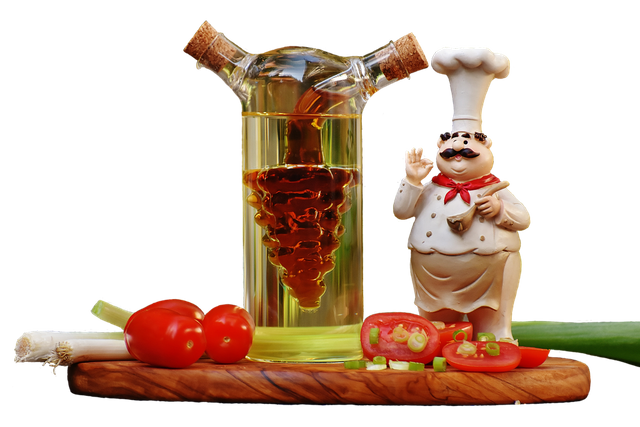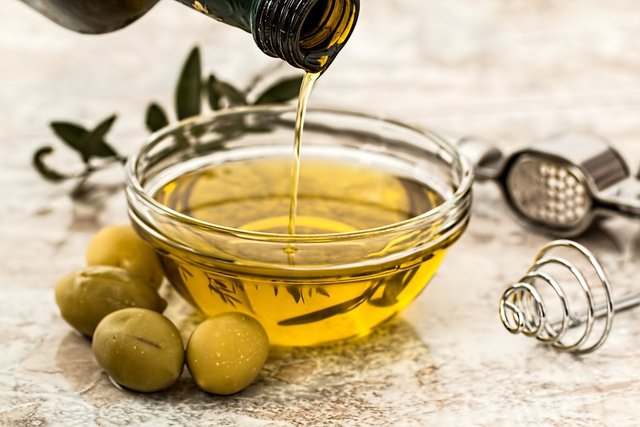Is vegetable oil harmful to health?
Although the vegetable oil has been known for thousands of years, it has been the animal fat that has always occupied a prominent place in our diet throughout history. It was only around the middle of the last century that vegetable oils began to produce on a large scale, replacing animal fats and becoming the main source of lipids in our diet. One reason for this replacement would be the fact that vegetable oil contains no cholesterol and has less saturated fat, two substances associated with the medical community with an increase in the number of cardiovascular diseases in the population.
However, despite the reduced levels of animal fats in the diet, obesity has only increased and the population suffers more and more (and sooner) of heart disease. So it is a question of wondering if vegetable oil is bad for your health. Or is it really healthy to produce from plants?
Types of vegetable oil
The main vegetable oils of commercial importance are:
• soy;
• Canola; *
• sunflower seeds;
• corn;
• peanuts;
• Olive oil;
• Palm tree;
• Cotton.
Rapeseed is actually the result of the genetic modification of rapeseed, a plant that naturally produces toxic oil. The modified plant has been called colza and its oil is extracted from the seeds. In the United States alone 26 million tons of soybean oil is consumed each year, followed by another 23 million tons of palm oil. Canola oil is the third most consumed by Americans, who use it mainly for their famous fried foods.
Oil production
Vegetable oils are generally produced in two ways:
Chemical extraction: the oil is chemically extracted with the use of solvents, which makes the process faster and cheaper. Among the most commonly used solvents is hexane, a substance derived from petroleum;
Mechanical extraction: also known as physical extraction, this method does not use solvents. The process is purely mechanical, using the printing system. It is the most widely used system for the extraction of edible oils in Europe since the inhabitants of the old continent are very sensitive to the environmental problem and there are also controversies about the use of chemicals in their food, as in the case of hexane. Although in theory some types of oil can be extracted from other parts of plants, almost all vegetable oils produced in the world are produced from seeds.
Hydrogenated grease
Vegetable oils contain predominantly unsaturated fats, which can be divided into monounsaturated and polyunsaturated. In their natural state, these fats are liquids at room temperature. The unsaturated oils can undergo a process called hydrogenation, which increases their melting point. This method makes the oil solid and more resistant to oxidation, thus reducing its rancidity and allowing its use longer. In practice, it means that industrialized foods produced with hydrogenated fats have a longer shelf life, such as biscuits, snacks, and frozen foods. This also applies to fryers, since hydrogenated fat can be reused more often than a normal vegetable oil. In addition to producing unsaturated fatty acids, hydrogenation can also lead to the production of Trans fats, a type of fatty acid related to the onset of heart disease.

Source
Vegetable oil x Animal fat
As the name already explains, animal fats are lipids derived from any animal. Lard, butter, and bacon are some of the most common forms of animal lipids found in the Western diet. Currently, the animals that provide the bulk of this type of fat for human consumption are cattle and pigs, followed by birds and fish. And unlike vegetable oils, animal fats are solid at room temperature. In addition to possessing cholesterol and a high content of saturated fatty acids, animal fat also has a lower smoke point than most vegetable oils. The smoke point is the temperature at which the nutritive components of the oil are degraded and harmful substances begin to form. In practice, this means that you can heat vegetable oil more than an animal oil without offering the same health risks. However, the consumption of fried foods based on vegetable or animal fat should be avoided.

Source
Problems with vegetable oil
One of the main reasons that medical professionals use to state that vegetable oil is harmful to health is its high Omega 6 content. In excess, this type of polyunsaturated fatty acid is harmful to the body, being bound to the emergence of inflammation and heart problems. For proper functioning, our body needs the proportion of Omega-6 and Omega-3 to be 1: 1. Excess Omega-6 from plant oils can alter this ratio, often leaving it at 2: 1. The researchers said that the demonization of animal fat in recent decades has drastically increased the consumption of vegetable oil, so it is now possible to find populations in which the ratio of Omega-6 and Omega-3 is surprisingly 16: 1.And we cannot forget that cellular inflammation is behind major Western diseases: diabetes, obesity, cancer, and cardiovascular disease. In addition, vegetable oils are subject to greater oxidation due to their high content of polyunsaturated fats: this means that there is a greater risk of the formation of toxic compounds in our body. Recent studies have linked the consumption of vegetable oils to a higher incidence of some types of cancer.
Vegetable oils to avoid because of its high Omega-6 content:
• soy;
• rapeseed;
• corn;
• sunflower seeds;
• rice;
• Sesame.
And of course, in addition to the excess of Omega-6, the vegetable oils described above still undergo chemical extraction, a process that can also cause damage to health and maybe another point where vegetable oil is bad for health. See for example how canola oil is produced: Not all vegetable oil is bad for your health though we can certainly state that excessive consumption of vegetable oil is bad for health, it is important to note that not all of them are equal.
Some oils have a low Omega-6 content and are excellent for health. I'm:
• Olive oil;
• Coconut oil;
• Avocado oil
Daily consumption of these healthy plant oils is also recommended as they help increase HDL levels in the blood - "good cholesterol". High rates of HDL help the protective function of the cardiovascular system, avoiding problems such as arteriosclerosis and heart attack. So even if the industry has tried to sell (more expensive) the image of sunflower and canola oil as healthy alternatives to soybean oil, the truth is not really that. You pay to pay a little more and get extra virgin olive oil or coconut to be part of your daily diet.


These are clean and fab.